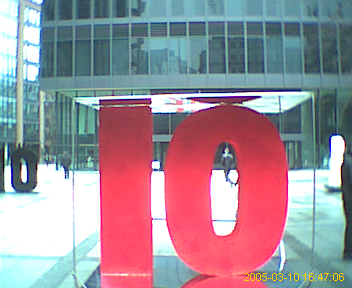I went to see “This House” earlier today. It’s the story of the Labour Whips who kept the Wilson and Callaghan government in power for 4½ years, without a majority for much of the time, from 1974 to 1979. It brought back many memories as I had joined the Labour Party in 74 and of course much of my politics was learned and established in the next 10 years. …
Electing a Prime Minister
It’s been an exciting couple of days in British Politics. One interesting fact that I was pointed at by Paddy Ashdown on the Radio this morning is that of the 12 Prime Ministers since the 2nd World War, only 6 came to office by winning an election. i.e. Only 50% of post war Prime Ministers came to office by winning an election.
| How | 1940’s | 1950’s | 1960’s | 1970’s | 1980/90’s | Post 1997 |
|---|---|---|---|---|---|---|
| General Election | Attlee | Churchill | Wilson | Heath | Thatcher | Blair |
| Between Election | Eden & MacMillan | Dougas Home | Callaghan | Major | Brown |
The table above doesn’t show Wilson’s second administration. Also Ashdown says that it was five who became Prime Ministers on the basis of the ability to command a majority in the House of Commons, rather than on the back of a general election, so I may have made a mistake. I used Wikipedia’s British General Elections page as my source. …
Memento Park, Budapest
A sculpture park full of the public statues from Budapest during the Communist era. The Hungarians, after the fall of the communist state in 1989 had a long and protracted debate about what to with that state’s public art. I think its important that they’ve chosen to preserve it, and also to do so in the context of this museum. If you visit this park yourself, buy the guide book, “In the shadow of Stalin’s boots”. As it says in the guide book, the Memento Park is not about Communism, but the fall of Communism. …
Maps and History
Just back from a busy weekend in London, yesterday we visited the British Museum and Library yesterday, looking for John Rocque’s Map of London, which we didn’t find. We went to the Museum’s Enlightenment room and did find out that the British Library is planning a Maps Exhibition next month. Yesterday was the first time I’d ever been, but I expect I’ll be back next month to see what they’re doing. …
Pocket Technology
I wrote three pieces on my sun/oracle blog using my pocket I.T., an article on a feed aggregator for the ‘touch, using my Nokia phone as an Internet gateway and syncing my google calendar. It’s all redundant now. …
10 around town

Sun commissioned a competition amongst the students at the Royal Institute of Art to associate, using sculpture, key values to the No 10, and hence Solaris to celebrate the launch of Solaris 10. The winners are available for viewing outside the Lloyd’s building on Thursday. I may try and get down to St Helen’s Piazza, these look quite good. The reason I like this marketing project, is it mixes publicising the great qualities of Solaris 10, with communitarian sponsorship and we get the double whammy of people talking about the art and talking about Sun & Solaris. Also, I like sculpture. …